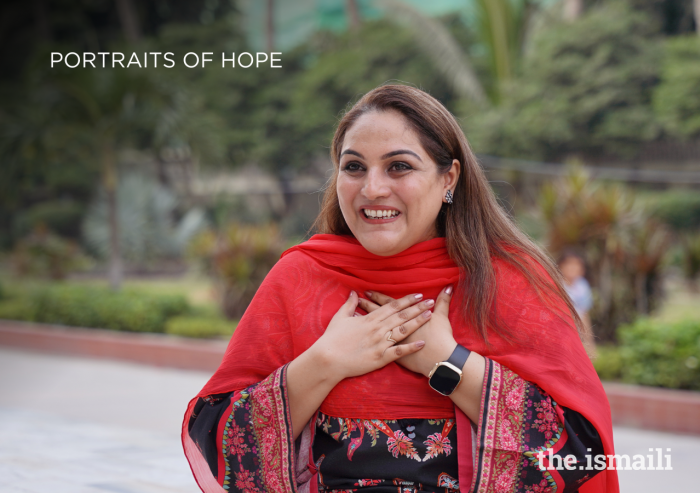A resident of Reshit, Chipurson, Sadaqat studies at the Diamond Jubilee (DJ) School which was established as a primary school in 1946. The school now teaches students from pre-primary to high school in English medium. About 150 students attend the school and almost half are females. The building has a total of 11 classrooms and offers facilities such as a library and a multi-purpose hall.
“Sadaqat is very competent as compared to other children. He is consistent in his studies and never takes a leave from school,” says Deedar Hussain, Head of the DJ School in Reshit.
Reshit, situated in the Hunza District of Gilgit-Baltistan, is the oldest village of Chipurson, also known as the central village of Chipursan Valley. Occupying the area comprising the Northernmost part of Pakistan, bordering Afghanistan and China in the Wakhan corridor, the Chipurson Valley hosts over 500 households with an approximate population of 3000. Many of Reshit’s Wakhi-speaking residents rely on flocks of sheep, as well as herds of goats and yaks, for sustenance. Due to extreme cold and heavy snowfall during the winter season, residents of the village stock up on household goods when life comes to a standstill.
However, as a farming community, and the only source of income for Sadaqat’s family, it was challenging for his parents to provide for necessities and afford quality education for their children.
The Socio-Economic Development Programme (SEDP) is an initiative of the Ismaili Council for Pakistan, whose primary goal is to improve the quality of life of remote communities in the mountainous regions of Pakistan. The aim is to uplift marginalised communities from the vicious, generational cycle of poverty and improve their overall socio-economic status by addressing issues like food and nutrition, health, education, youth development, income and habitat.
“I want to be an author, so people can enjoy reading my stories and praise me,” says Sadaqat.
One of the major components of SEDP is to support access to quality education, so children like Sadaqat can achieve their dreams and empower their families. These programmes support children’s educational endeavours in public and private schools alike.
Furthermore, the sustenance support programme of the SEDP, caters to the basic requirements of marginalized families and provides them with the opportunities and prospects for a respectable life with confidence and dignity.







